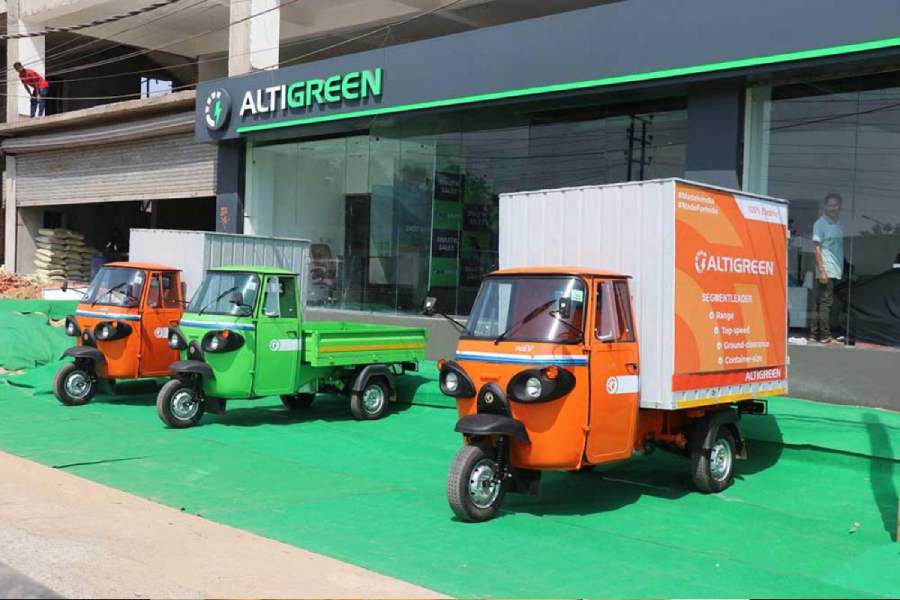The electric cargo vehicle penetration in the country will rise to almost 50 to 60 per cent by 2025. At present, the segment is seeing the highest rate of adoption.
Altigreen Propulsion Labs, which manufactures electric three-wheelers for the cargo segment, is aiming to garner 20 per cent market share during the next financial year.
A Bangalore-based start-up, it has three products in the market, including a high deck, a low deck and a fast-charging three-wheeler cargo called neEV TEZ that it launched in the Calcutta market recently.
The company is in talks with several private-equity (PE) players to raise the second round of funding in the last quarter of the current financial year, said Debasish Mitra, marketing head of the company.
In February 2022, the company raised "Series A" funding of Rs 300 crore from Sixth Sense Ventures, Exponentia, Singapore Metro and Reliance Energy, the proceeds of which had been used for setting up a manufacturing facility at Malur near Bangalore.
“We are in talks with several PE players to raise the second round of funding (Series B) in the last quarter of the current financial year. The money will be spent on product development, for building up scale, marketing, investments in the supply chain and to develop export markets”, Mitra said.
Starting operations in 2019, the company's production facility now can manufacture 55,000 units per year. Altigreen sells around 350 electric cargo three-wheeler vehicles having a payload of 550 kilograms per month.
MG Motor
MG Motor is looking to have 25 per cent of its sales from EVs this year.
The company plans to launch one new car every year, said Gaurav Gupta, deputy MD, MG Motor India, while speaking to The Telegraph in the city. "We have brought five cars in four years since our operation in India. We will be bringing in four cars in the next four years."
"We have showcased in the Delhi Auto expo a lot of technologies including EVs and plug-in hybrids. We are evaluating each of those for the Indian market," said Gupta.
The company has invested Rs 4,000 crore in its plant in Baroda. "Our capacity is 1.2 lakh cars per annum. Currently, we are at 50 per cent utilisation. We are looking right now to achieving 100 per cent utilisation and then we are looking at future expansion and future operations. In that we are looking to set up our second plant, we are exploring an electric vehicle battery assembly plant too," said Gupta.
The Comet EV, the sub Rs 10 lakh EV launched by the company is slowly gaining traction among college students to middle-aged consumers, said Gupta. "The most penetration of Comet is in Bangalore. The overall acceptance of Comet is the highest in that city."
"The growth of EV passenger vehicles is the highest in the sub-Rs 10 lakh range and the Rs 20 lakh and above range. The segment of Rs 10 lakh to Rs 20 lakh has degrown," said Gupta.











